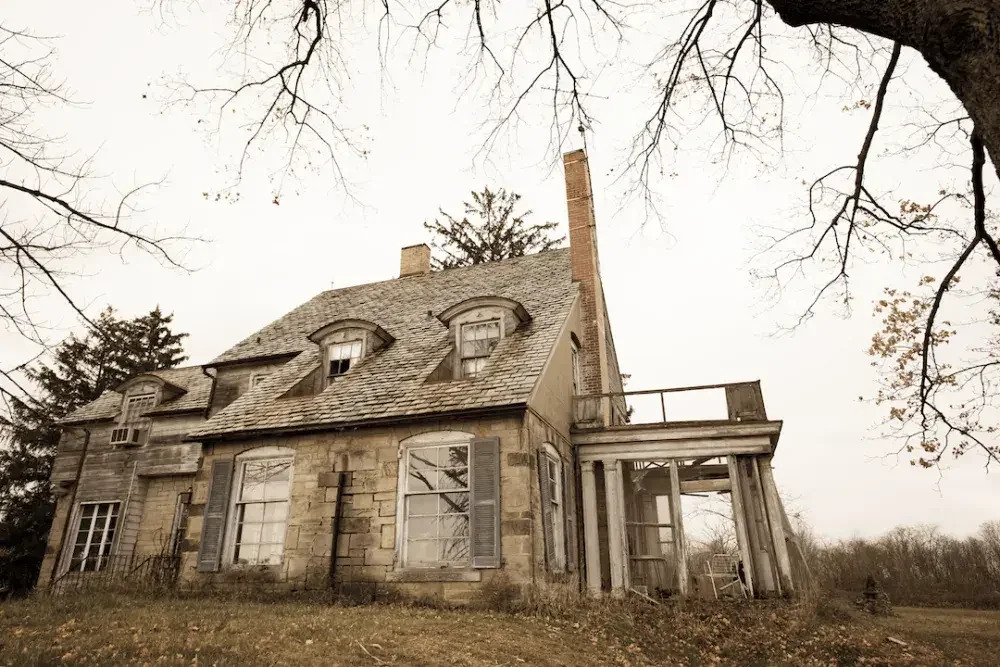
When George and Kathy Lutz went to a house showing on suburban Long Island in 1975, their realtor told them what had happened there a year earlier: On a horrifying November night in 1974, the owners' oldest son had shot and killed his parents and all four of his siblings in their beds.
The Lutzes decided they could handle this and bought the house anyway. It was just 28 days before they fled in terror. The tales they told have lived on as the basis for The Amityville Horror book and movie series.
The Lutzes at least knew about the murders before they bought the house. If you're buying a home with a history of death or haunting, you might not be so lucky.
Don't the sellers have to tell you?
There's a common misconception that a home's sellers must tell you if the house might be haunted. But, in fact, the concept of “caveat emptor," or “buyer beware," is alive and well in the world of paranormal real estate.
Real estate disclosure requirements depend on the state the property is located in. In many states, sellers have a laundry list of items to disclose, from roof leaks to crumbling foundations. In others, there are no specific required disclosures. Buyers usually hire a home inspector to uncover physical defects that the sellers didn't know about or neglected to mention.
But most paranormal activities have psychological impacts, not physical ones. Harry Potter's Nearly Headless Nick might wreak havoc on your dinner parties, but he doesn't destroy the place.
These types of hauntings, or “emotional stigmas," fall into the same general category as murders and suicides on the property, and homes built on graveyards. They'll creep some buyers out, but not others. A lot of people don't even believe paranormal activity exists. And a home inspector isn't likely to notice the apparition lurking under the stairs.
Perhaps this is why only about half of the states have laws dealing with stigmas at all, and most of those are designed to limit what the sellers must disclose.
Massachusetts law, for example, says flat out that the sellers don't have to tell you about hauntings or paranormal activity. You could have ghostly pilgrims at your Thanksgiving dinner table and you wouldn't have to say a word about it.
In California, you must disclose deaths that have occurred on the property, but only if they occurred in the last three years. This means that the family in the first season of American Horror Story couldn't have known how many people died in the house and might still be around to haunt it.
Still, there are exceptions. In most states, sellers can't outright lie if asked about a defect. They'd have to tell you about a ghost if you asked. And some supernatural events—like blood oozing from baseboards or Moaning Myrtle clogging up the plumbing—might need to be disclosed because they cause physical problems that affect the property's value.
If you buy a haunted house, can you give it back?
In a famous 1991 New York case, Stambovsky v. Ackley, the seller, Helen Ackley, had told the local paper and Readers Digest about the poltergeists in her Victorian house. She even listed it on a local ghost tour.
But when it came time to sell, she conveniently forgot to mention the house was haunted. The buyers put down a deposit and then—big surprise—someone in town tipped them off. They sued, and an appeals court allowed them to rescind, or undo, the transaction. The court said Mrs. Ackley's ghost stories had greatly affected the property's value, and therefore she was obligated to disclose the hauntings to the buyers.
Other court cases have sometimes allowed buyers of haunted houses to get out of the deal, but only if sellers didn't disclose information when they should have, or misrepresented the property's condition.
If you're buying a house and you don't want to deal with a poltergeist in your daughter's closet, you might as well ask the sellers and their realtor if they are aware of any hauntings or paranormal activity, or if there have been any deaths on the premises. At worst, they'll think you're nuts. At best, you may get some interesting information that the seller wouldn't otherwise have had to disclose.

